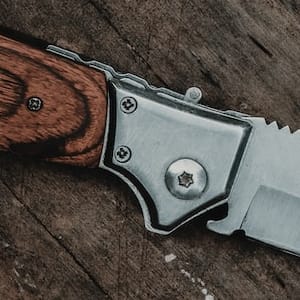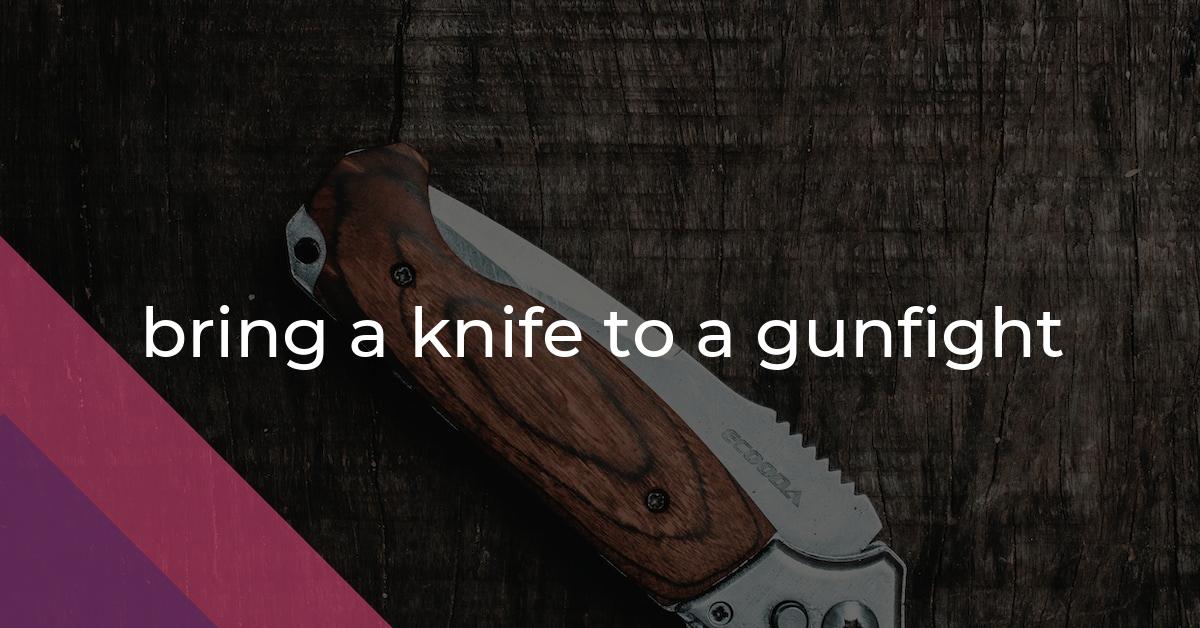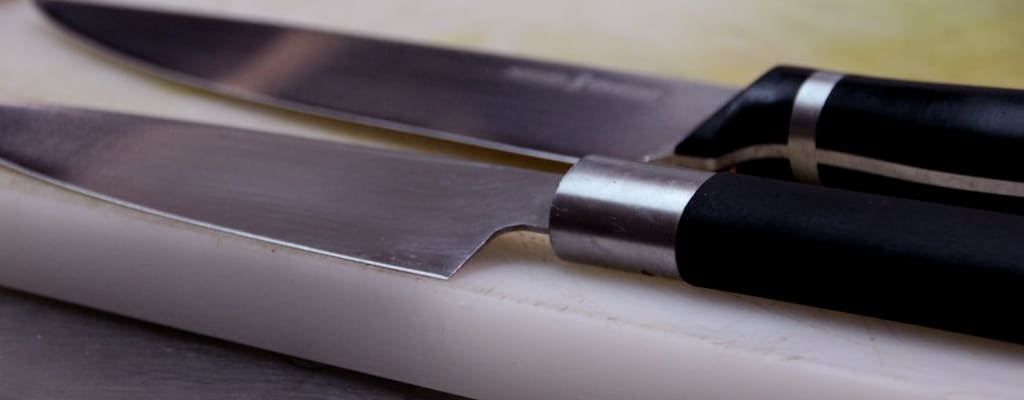bring a knife to a gunfight: Idiom Meaning and Origin
What does ‘bring a knife to a gunfight’ mean?
The idiom "bring a knife to a gunfight" means to enter a situation without being adequately prepared or equipped, and thus have little chance of success or survival.

Idiom Explorer
The idiom "stick the knife in" means to purposely say or do something to harm or betray someone, usually when they are already in a vulnerable or difficult situation.
The idiom "in at the deep end" means to be thrown into a difficult or challenging situation without any preparation or guidance.
The idiom "guns blazing" means to engage in a task or activity with great determination, energy, and enthusiasm.
"Go to the mattresses" is an idiom that means to prepare for a serious fight or conflict by using all available resources and strategies. It originates from the practice of taking weapons and supplies to a hidden location during times of war or conflict.
The idiom "go for the throat" means to attack or confront someone in a ruthless or determined manner, aiming to cause serious harm or defeat them completely.
The idiom "give it the gun" means to apply maximum effort or speed to a task or activity.
The idiom "get into trouble" means to find oneself in a difficult or dangerous situation due to one's actions or decisions.
The idiom "fish in troubled waters" means to take advantage of a difficult or chaotic situation for personal gain or advantage.
The idiom "fight fire with fire" means to combat a problem or attack by using similar methods or tactics as the opposite party. It suggests using their own aggressive actions against them.
The idiom "fight fires" means to deal with urgent or unexpected problems as they arise. It implies the need for quick action and problem-solving in difficult situations.
Defying Odds: Knives vs Guns
The idiom "bring a knife to a gunfight" is a commonly used expression in American English. Its origins can be traced back to the American Old West, a period of time characterized by lawlessness, violence, and constant confrontations.
The phrase itself is figurative and is used to convey the idea of being inadequately prepared or ill-equipped to deal with a significantly more powerful or formidable opponent. It suggests a mismatch in terms of resources, ability, or strategy, where one party is at a severe disadvantage compared to the other.
The idiom's literal interpretation refers to an actual physical confrontation. In this scenario, picture a person armed with a knife facing off against someone with a gun. It's clear that the person with the gun has a distinct advantage. Using a gun, they have the power and range to easily overcome the person with the knife. It's like trying to bring a knife to a gunfight - a hopeless and futile endeavor.
This idiom can be related to another popular expression: "stick the knife in." When someone sticks the knife in, they are purposely causing harm or betraying someone else, often in a sneaky or underhanded way. Just as bringing a knife to a gunfight signifies being unprepared, when someone sticks the knife in, they are acting with malicious intent and taking advantage of someone's vulnerability.
Another idiom that can be related to "bring a knife to a gunfight" is "bring it weak." This phrase is often used to challenge someone who is not putting forth their best effort or is not coming prepared for a competition or confrontation. When you bring it weak, you are essentially bringing a knife to a gunfight. You are inadequate and ill-equipped to face the challenges ahead, making it easy for others to overpower or defeat you.
Similarly, the phrase "before you can say knife" can also be connected to "bring a knife to a gunfight." The expression "before you can say knife" is used to emphasize the speed or immediacy with which something happens. In the context of "bring a knife to a gunfight," it suggests that the mismatch or disadvantage becomes apparent almost instantaneously. The moment you realize you've brought a knife to a gunfight, you understand the dire consequences and lack of preparedness.
Lastly, the idiom "bring one's own hide to market" can also be linked to "bring a knife to a gunfight." When you bring your own hide to market, you are willingly putting yourself in a vulnerable position or exposing your weaknesses. Just like bringing a knife to a gunfight, bringing your own hide to market signifies a lack of preparation, foresight, and awareness. You are exposing yourself to potential harm or danger without any means to defend yourself.
Metaphorically, the idiom "bring a knife to a gunfight" has come to represent any situation where one party is outmatched or outgunned, whether in terms of expertise, knowledge, resources, or strength. It warns against entering into a conflict or competition without the necessary tools, skills, or advantages required to succeed or prevail.
The origins of the phrase "bring a knife to a gunfight" are often attributed to the character Sean Malone in the 2011 crime drama film "The Untouchables." The iconic scene where Malone, played by Sean Connery, utters the line has contributed to its enduring popularity and usage in contemporary American culture.
Furthermore, the idiom has been widely used in various forms of media such as literature, television, and movies. Its catchy and memorable nature has made it a go-to expression to highlight the foolishness and futility of entering a situation unprepared.
Overall, the idiom "bring a knife to a gunfight" resonates with individuals across different contexts and situations. It serves as a reminder to carefully assess and consider the relative strengths and weaknesses of all parties involved before engaging in any form of conflict or competition. By understanding and appreciating the potential consequences of being ill-prepared, one can strive to avoid being caught in a situation where bringing a knife to a gunfight is the only option.
Example usage
Examples of how the idiom "bring a knife to a gunfight" can be used:
- He was completely unprepared for the debate and brought a knife to a gunfight.
- She thought she could win the lawsuit with her weak evidence, but it was like bringing a knife to a gunfight.
- The team showed up to the match without any strategy or proper training, it was like bringing a knife to a gunfight.
More "Conflict" idioms



